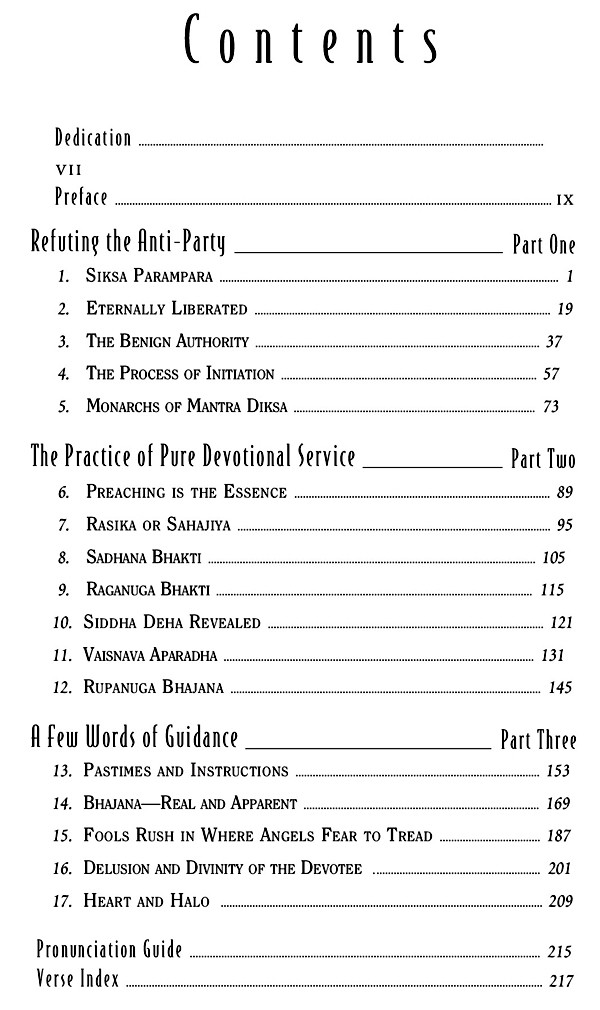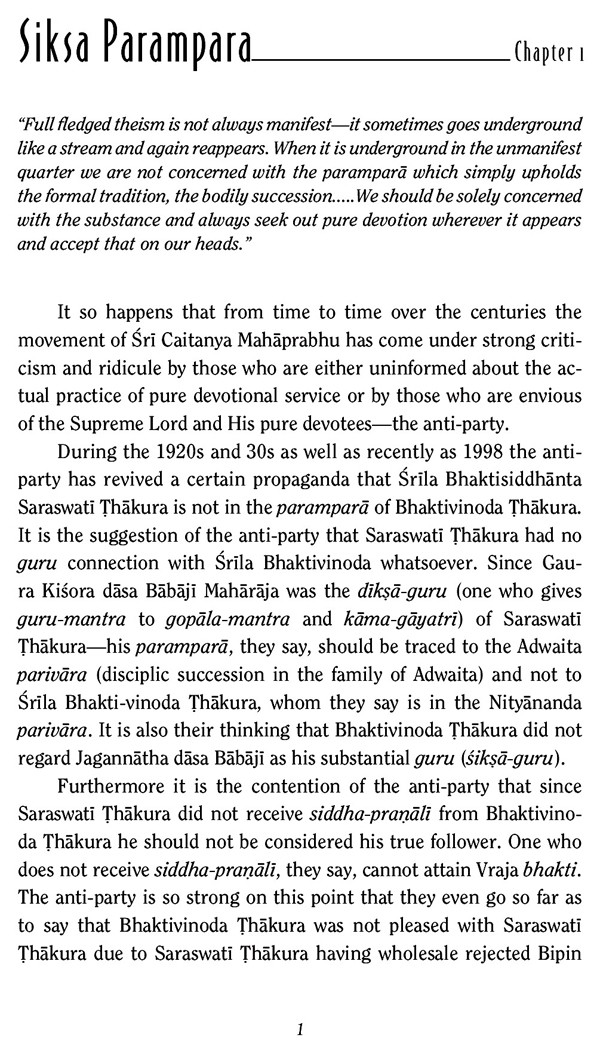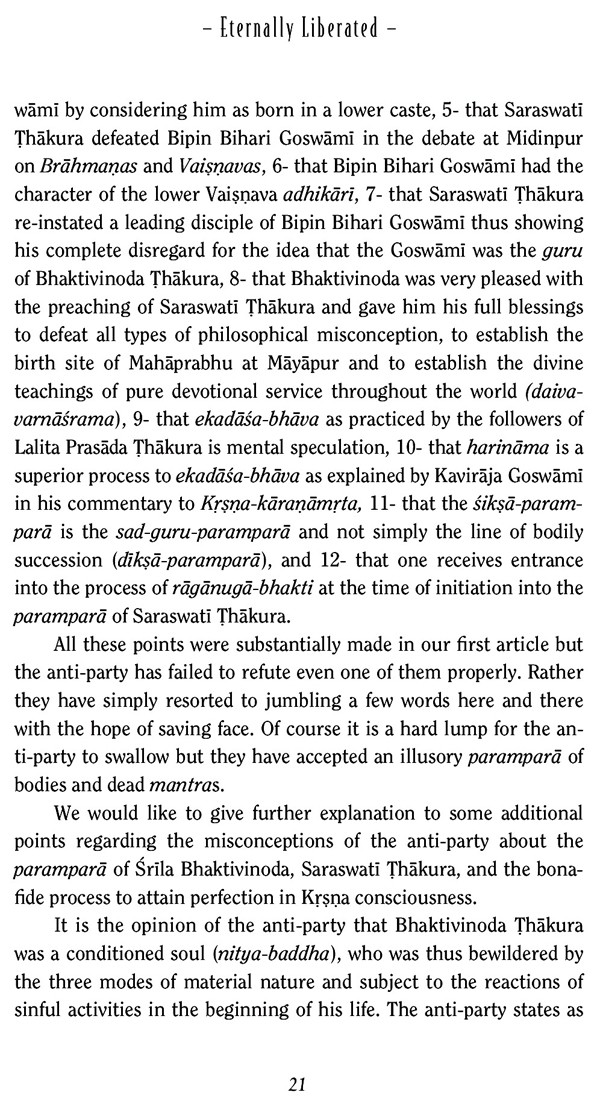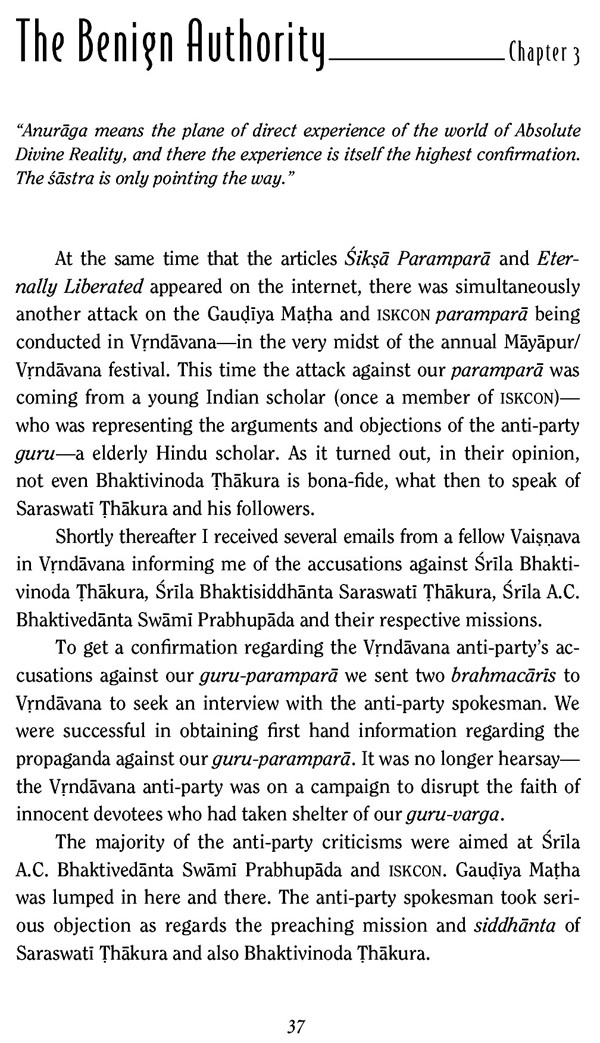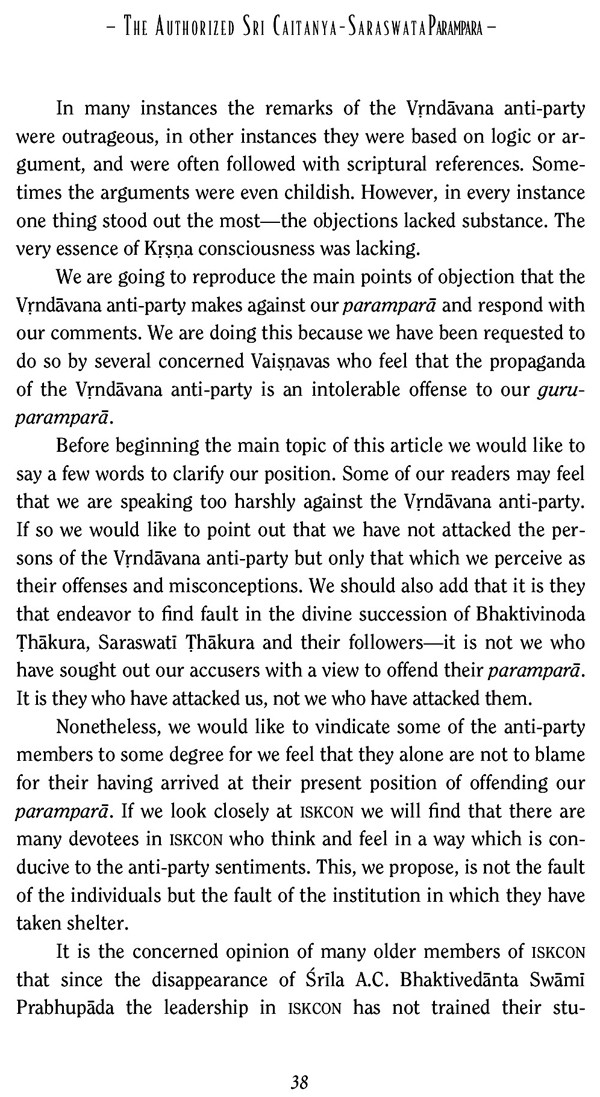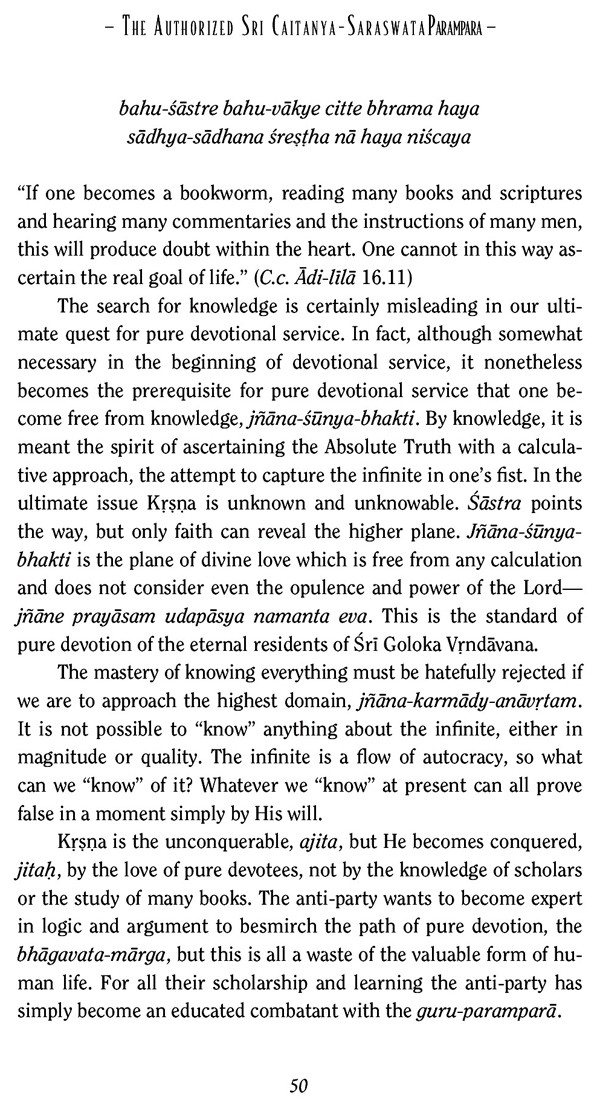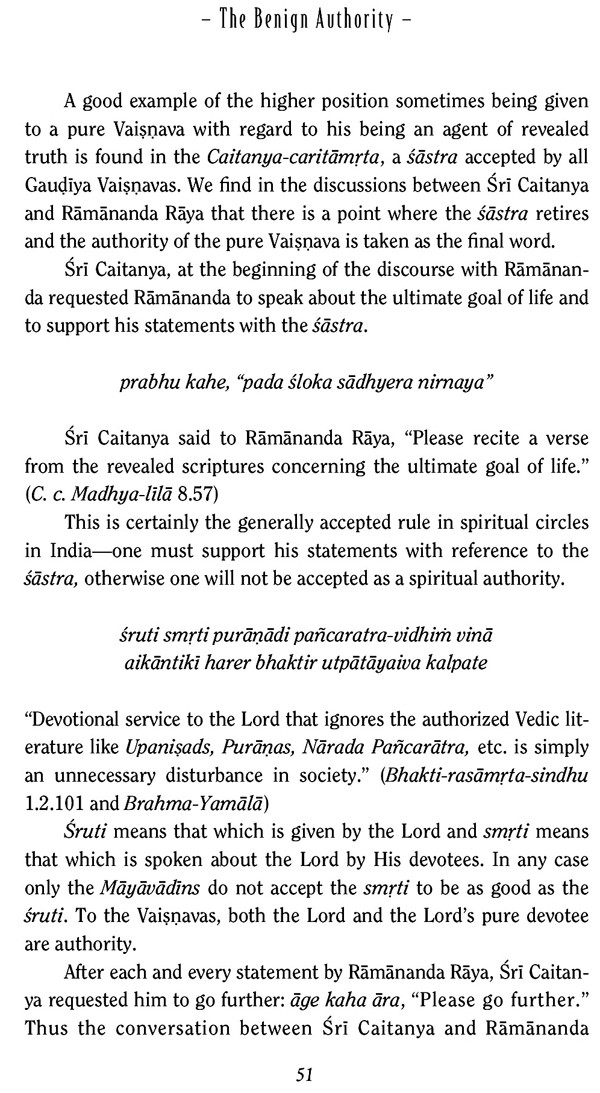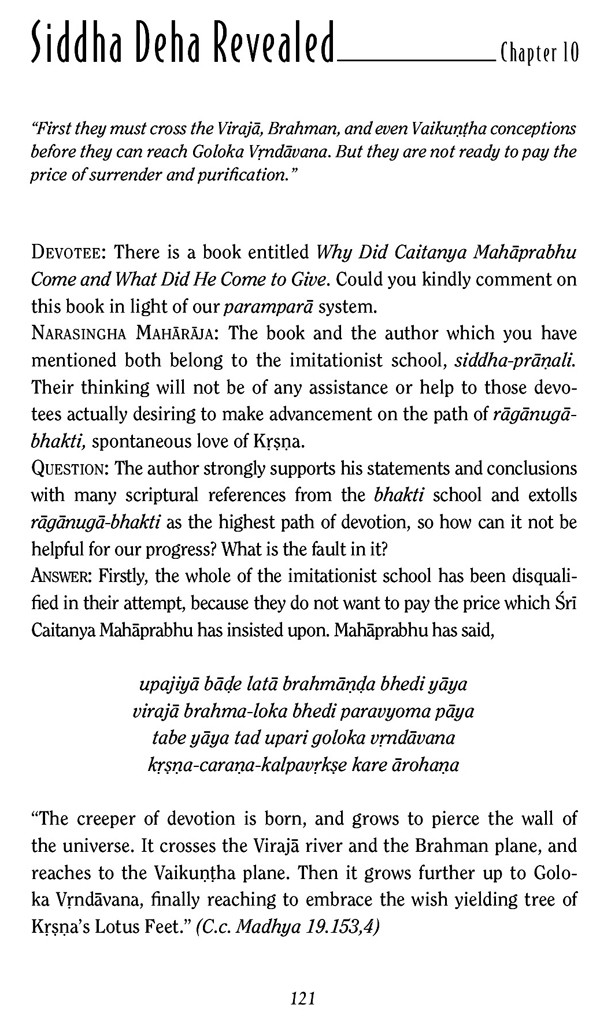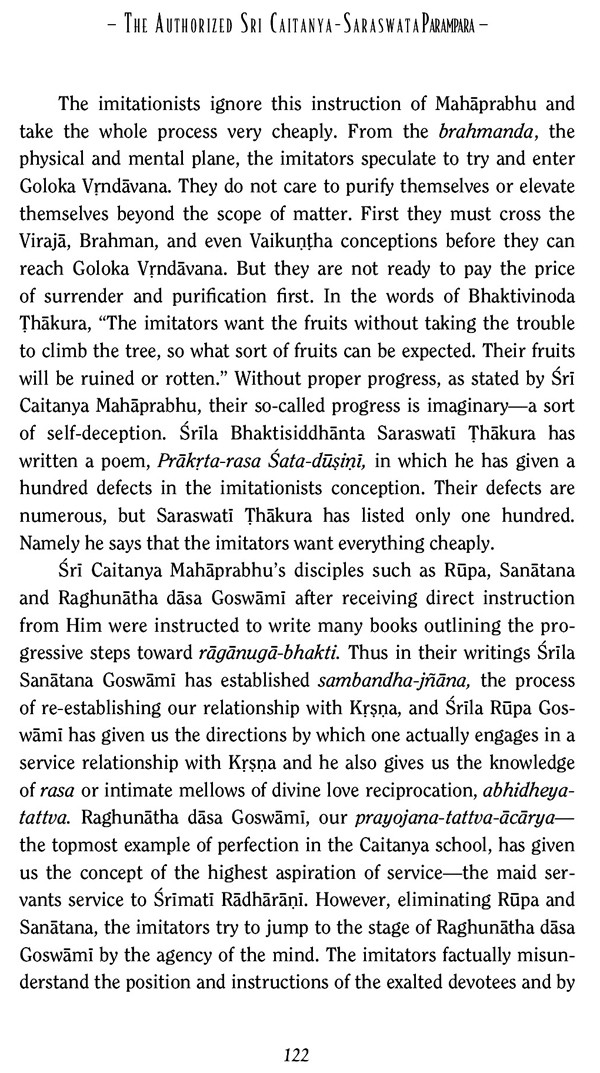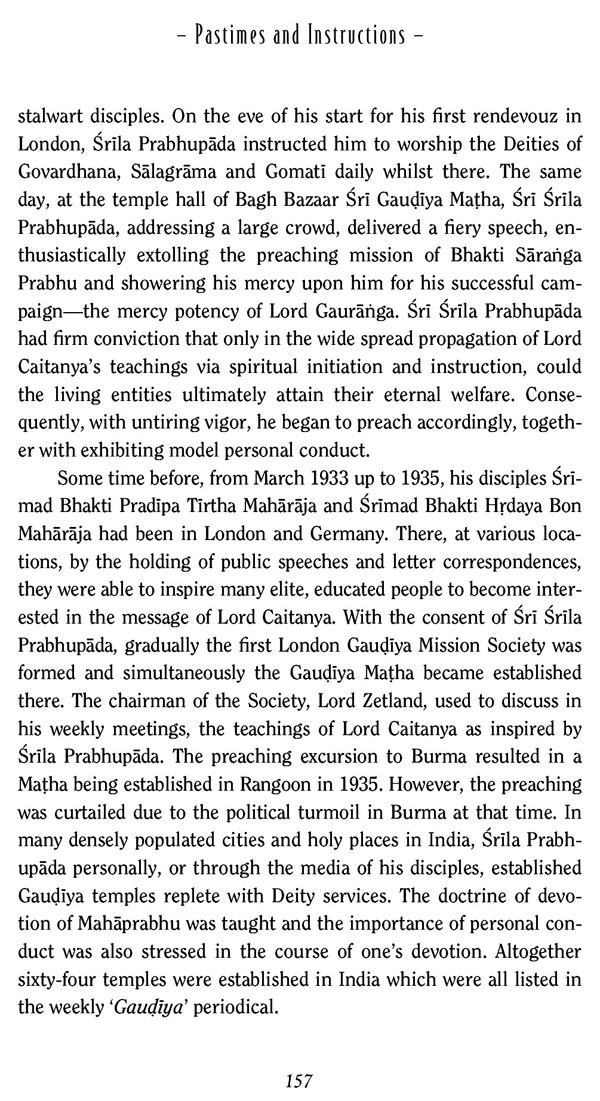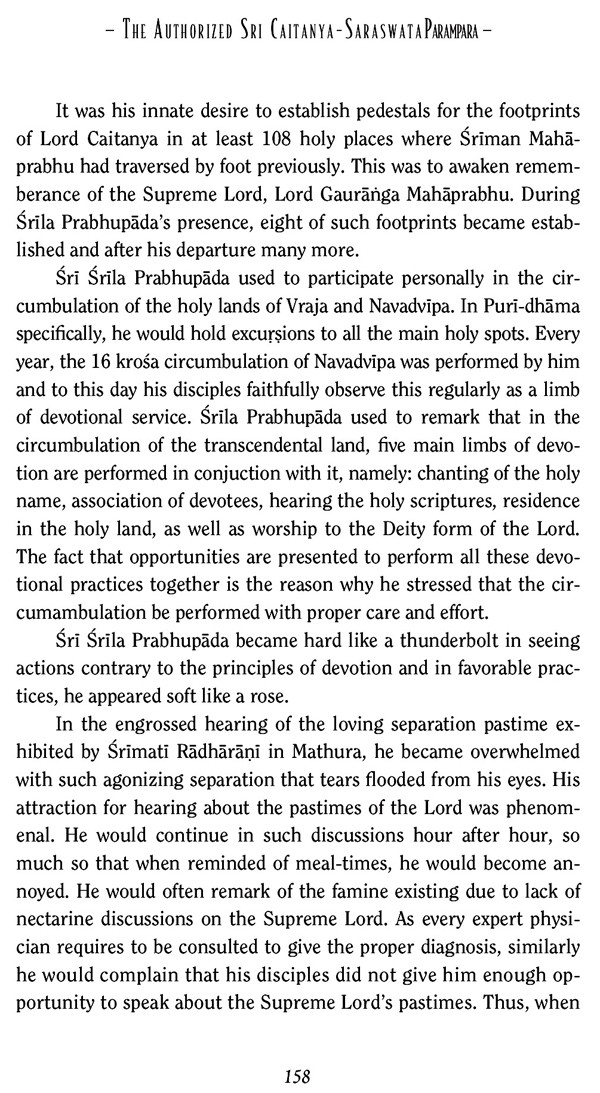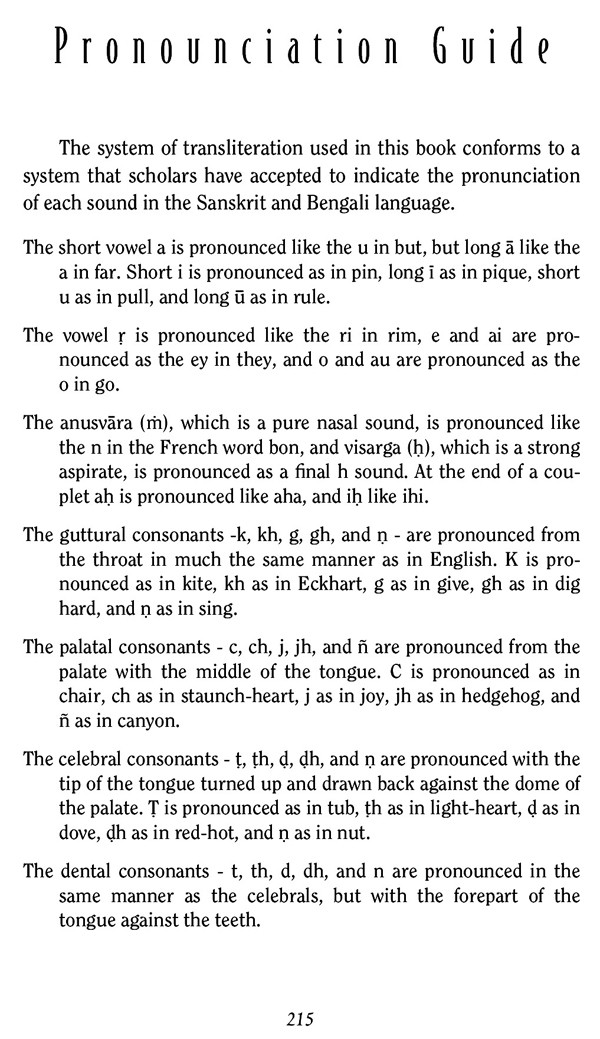
The Authorized Sri Caitanya Saraswata Parampara
Book Specification
| Item Code: | UAB508 |
| Author: | B.G. Narasingha |
| Publisher: | Gosai Publishers |
| Language: | English |
| Edition: | 1998 |
| Pages: | 220 |
| Cover: | HARDCOVER |
| Other Details | 9.00 X 6.00 inches |
| Weight | 500 gm |
Book Description
It is perhaps the ultimate irony that the sublime process of Kṛṣṇa consciousness, which is comprised of the deepest and most profound philosophical cohesiveness and which demands the greatest self-sacrifice and renunciation or self-denial, has once again fallen into a pit of misconception. This is in spite of, after having been many times clearly enunciated and pain take only delineated by the Lord and His pure representatives. All practitioners will heartily agree that the process is faultless and the goal certain, but just what the attainment (prayojana) is and how to reach it (abhidheya) raises severe differences of opinion amongst the devotees. The entire process is perfect and pure, precisely engraved in the Vaiṣṇava literatures and precisely enunciated by the Lord's pure agents. The faculties entirely in the practitioners. As a lens on a camera filters everything according to its capacity, we find in this troubled age that some of the neophyte devotees of the Lord have taken to filtering the process of bhakti and applying it according to their own desires and necessities. Real devotion is a life of divine slavery, śaraṇāgati-full surrender to that which is recognized as the highest necessity. Pure devotion jñāna-karmādy-anāvrtam, necessitates the abandonment of prior conceptions and necessities-sarva-dharmän-parityajya, otherwise we are guilty of karma-miśra-bhakti (devotional service tainted with fruitiveness). So many divergent opinions and impure alternatives have arisen, due to our failing or inability to adhere strictly to the essential core necessities of the process. Mayavādism arises out of our false ego-our impure desire to lord it over all as the supreme enjoyer, rather than surrender to the pure Lord. Sahajiyaism arises due to our desire to enjoy the result now, without paying the price of purity, thus cheapening the process. Materialism, or the spirit of enjoyment, must be sacrificed in the fire of surrender-in recognition of our factual constitutional position as eternal servants of Krṣṇa.
The words "Sri Caitanya-Saraswata Paramparā" indicate the disciplic succession (paramparā) which was handed down from the time of Śri Caitanya Mahaprabhu to that of Srila Bhaktisiddhanta Saraswati Thakura. This parampara is a disciplic succession of di vine knowledge (divya jñānaṁ), also known as the Brahma-Madhva Gaudiya sampradaya or the Bhagavata-paramparā.
Brahma-Madhva indicates the preceptors from Lord Brahmā to Śri Madhvācārya who carried the parampară in ancient times. The use of the term Bhagavata-parampara indicates the preceptorial line of the principles contained in Srimad-Bhagavatam. The Bhagavata paramparā itself began at the outset of this universe wherein Śri Kṛṣṇa spoke the Srimad-Bhagavatam in four nutshell verses to Lord Brahmä. Lord Brahmä then spoke those four essential verses of Srimad-Bhagavatam to his disciple Śri Nārada Muni who in turn taught those verses to Sri Vedavyäsa who in turn, upon his mature realization, compiled the Srimad-Bhagavatam (in twelve cantos) as we know it today. Vyasa's disciple was Śri Madhvācārya. From Madhvācārya the disciplic succession came to Sri Mādhavendra Puri the fifteenth preceptor in the line. Mädhavendra Puri's disciple was Śri Ïśvara Puri who became glorious as the spiritual master of Sri Caitanya Mahaprabhu.
**Contents and Sample Pages**
